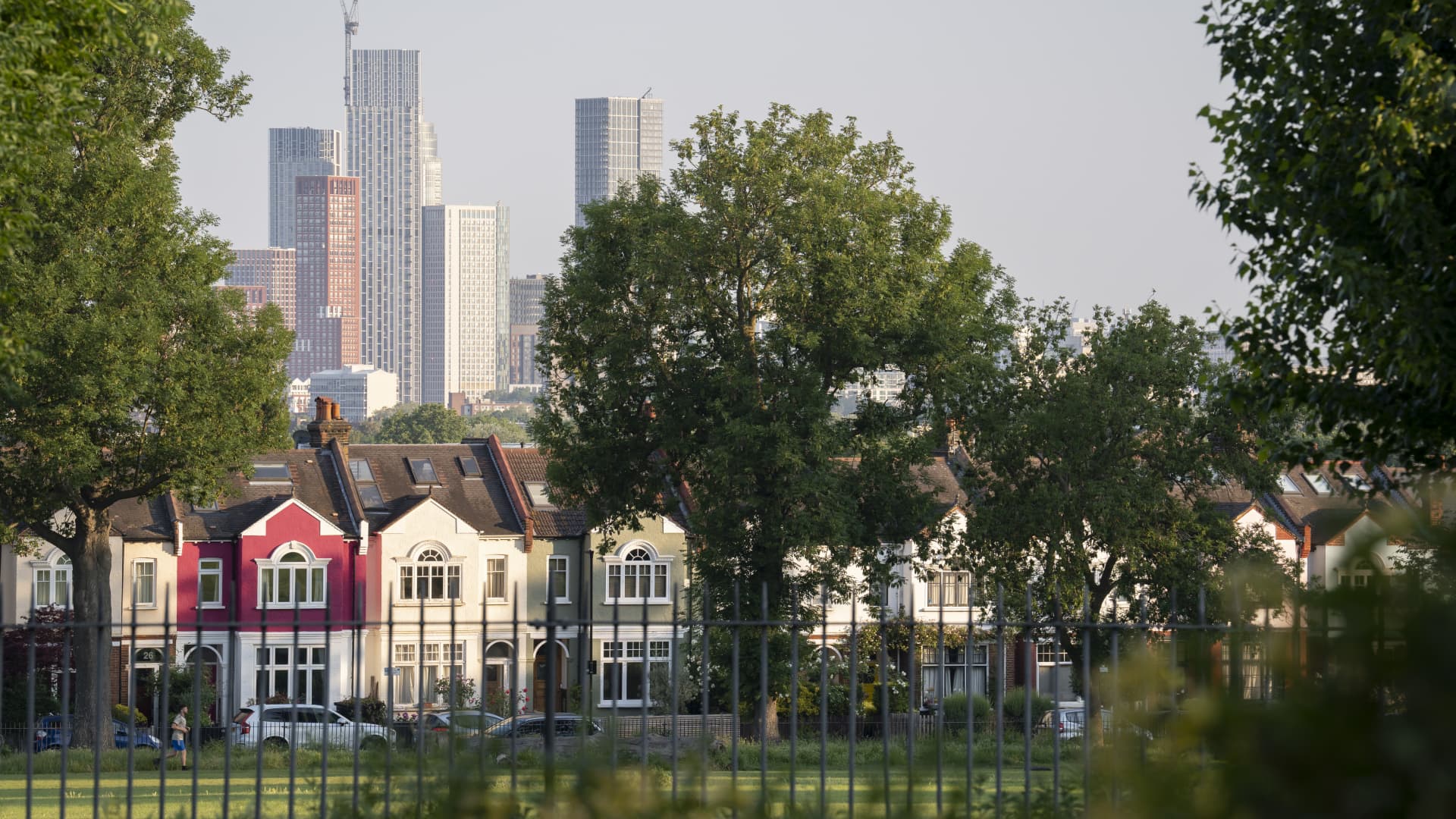Is The Housing Market Collapse Over? Pending Home Sales Suggest An End May Be Near
Topline
Pending home sales—a leading indicator for housing market activity—fell less than expected last month in a potential sign that sales may soon stop collapsing as mortgage rates settle below recent highs, according to new data released Wednesday, but even if sales stop plunging, experts still aren’t sure how soon the market will recover.
Key Facts
The National Association of Realtors’ pending home sales index, which measures home sales based on contract signings, ticked down 1% to 89.8 points in July, with transactions falling 19.9% year over year, according to a Wednesday release.
In a statement, NAR chief economist Lawrence Yun said the “very modest” decline suggests the housing market “may be at or close to the bottom in contract signings,” thanks to recently retreating mortgage rates, which are still up about 2 percentage points year over year but have fallen to 5.7% from a peak of more than 6% earlier this summer.
Rising rates, along with record prices, pushed housing affordability to its worst level since 1989 in June, according to NAR, with the monthly mortgage payment on a typical home surging $679 to $1,944 from one year ago.
Worsening affordability has curtailed demand, with pending home sales now 27% below the recent peak in October, but the respite in rates has many experts predicting the housing collapse may soon come to an end.
In emailed comments after the Wednesday data, Pantheon Macro chief economist said home sales will likely reach a floor before the end of the year, but that “no recovery is in sight” since a larger-than-usual proportion of buyers have been pulling out of contracts; last month, brokerage Redfin reported buyers are canceling sales at the highest rate in more than two years.
NAR says home sales should start to rise by early next year, but that’s only after assuming that mortgage rates stabilize near current levels and job creation remains steady.
What To Watch For
Pending home sales are good early indicators of sales over the next one or two months, which is roughly how long it typically takes to finalize sales once contracts are signed.
Key Background
A rash of data this summer has painted a challenging picture of the housing market. High savings and low interest rates drove record growth in home sales and prices during the pandemic, but the Federal Reserve’s attempts to reduce inflation by raising interest rates have abruptly curtailed demand this year—even as prices have kept creeping up. “We’re witnessing a housing recession in terms of declining home sales and home building; however, it’s not a recession in home prices,” Yun said last week.
Further Reading
Pending Home Sales Plunge In June As Demand Is Weighed Down By Surging Mortgage Rates (Forbes)
Plunging Home Sales Push Prices Down From Record Highs (Forbes)








